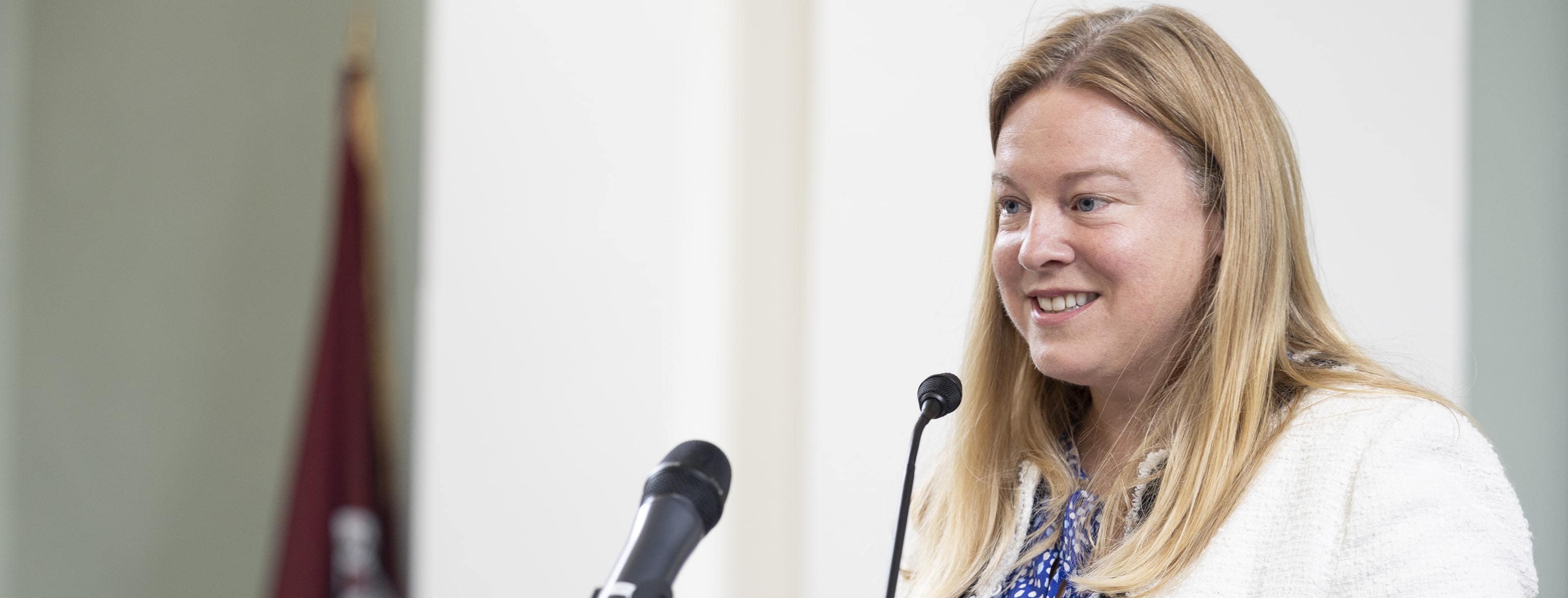
Compliance with an online safety code ‘is not optional’
Online Safety Commissioner and solicitor Niamh Hodnett said last night (18 May) at the Law Society that platform compliance with protective measures will not be optional.
Establishing a regulatory framework is the chance to make a difference and, as commissioner, she will use enforcement to reduce harmful online content.
Speaking at a Blackhall Place parchment ceremony for 75 new solicitors, Hodnett (pictured) said that everyone, but particularly children, must be protected from online harm.
The new body will be consulting publicly on its first online safety code, and welcomes views to inform a risk-based and proportionate approach to regulation.
Freedom of expression
However, freedom of expression and public consultation will be centre stage, Hodnett added, to ensure that the internet remains a vibrant, yet safe place.
Cyberbullying, material that promotes or encourages self-harmers, suicide or eating disorders, as well as non-consensual image sharing, harassment, and sharing of terrorist content will all be covered under the Digital Services Act, she said
The work will have a particular focus on illegal content online that damages child mental health by the amplification of harmful content online, such as toxic beauty, self-harming, suicide ideation, cyber-bullying, or misogynistic content.
Pornographic content that leads to real-world physical harm to children accessing age-inappropriate material, which distorts the understanding of consent, will also be a target.
Do better
“We all should, and can, do better,” Hodnett stated, and the focus will be safety by design, with children at the centre – under article 24 of the EU Charter of Fundamental Rights.
Hodnett said that she was meeting with various stakeholders and NGOs, as well as digital platforms.
“The code which will have to strike the right balance between protection from harm, the rights of children, the right to participate in digital society, privately and safely, and the right to freedom of expression.
“It will also have to respect the economic rights of the regulated entities and be proportionate.
“Most of all, the code would have to be legally robust to withstand legal challenge and to be enforceable,” Hodnett said.
In 2024, an individual complaints mechanism will be set up, and designated online services will be monitored to make sure they comply with the online safety code, she said.
Criminal or civil sanctions
“If they don't, we will proceed to enforcement proceeding to criminal or civil sanctions.
“I genuinely believe that regulatory framework in the act is an opportunity for online platforms to put their best foot forward, to move on from the past, and to work with everyone to make the internet a safer place.
“I want to hear their ideas about how to make regulation work effectively when I'm meeting with them.
“We will keep track of how they comply with the online safety code and ensure that they are transparent about how they moderate content.
Enforcement
Lack of compliance will lead to enforcement and imposition of fines of up to 10% of turnover or up to €20 million, whichever is greater, she warned.
These measures will be confirmed by the High Court.
Senior executives can also be prosecuted for criminal liability under the act, she added.
“I sincerely hope this will not be necessary,” she concluded.